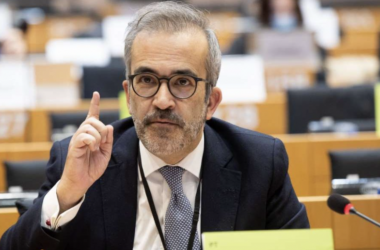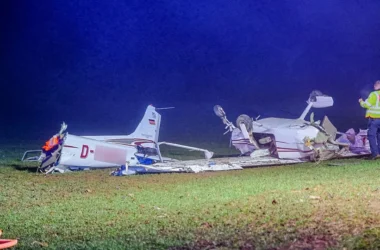The European Union has ignited a firestorm of criticism after extending an invitation to Syria’s interim president, Ahmed al-Sharaa, for a donor conference in Brussels, even as chilling reports surface of mass atrocities against religious minorities under his rule.
Recent days have seen an explosion of violence in northwestern Syria, where brutal clashes between security forces and pro-Assad loyalists have left hundreds of civilians dead. Shocking footage circulating online shows executions, bodies dragged through the streets, and extremist militants openly calling for the extermination of Alawites, a minority sect within Shia Islam. Alongside them, Syria’s Christian population has also faced a wave of persecution under the new radical regime.
According to the Syrian Observatory for Human Rights (SOHR), over 740 civilians have been killed in key coastal cities like Latakia, Jableh, and Banias—historical strongholds of Syria’s minority communities. However, with the chaotic situation on the ground, the true death toll could be even higher.
Remix News released disturbing video evidence of a child brandishing a knife, surrounded by jihadists chanting that the extermination of Alawites was a “divine mission.” The massacres have been framed as revenge for the rule of former President Bashar al-Assad, himself an Alawite, who was accused of oppressing Syria’s Sunni majority for decades.
A Stark Divide in the West’s Response
While the United States swiftly condemned the bloodshed, labeling the perpetrators “radical Islamist terrorists, including foreign jihadis,” the EU’s response was far more subdued. U.S. Secretary of State Marco Rubio expressed unwavering support for Syria’s religious and ethnic minorities, including Christians, Druze, Alawites, and Kurds. He demanded that Syria’s interim government take decisive action to bring those responsible to justice.
The EU, however, issued a more ambiguous statement, condemning “recent attacks, reportedly by pro-Assad elements, on interim government forces” without directly addressing the violence against religious minorities. Instead of taking a firm stance, Brussels urged respect for international humanitarian law and emphasized Syria’s territorial integrity.
Adding fuel to the fire, the invitation to Al-Sharaa follows the EU Council’s recent decision to relax economic sanctions on Syria—an effort to boost the country’s fragile economy and facilitate its political transition. This move, which includes lifting restrictions on Syria’s energy sector and unfreezing the assets of five financial entities, has drawn sharp criticism, given the ongoing sectarian bloodshed.
European Leaders Condemn the EU’s Approach
Many European politicians and analysts have blasted the EU for what they see as appeasement of an Islamist regime.
Rob Roos, former vice president of the European Conservatives and Reformists (ECR) party, didn’t hold back: “This is madness! Non-Muslims and even moderate Muslims are being slaughtered by HTS, and the EU invites their leader to Brussels? The EU isn’t a peace project anymore—it’s a disaster project.”
German MEP Tomasz Froelich (AfD) also slammed Berlin’s financial aid to Syria’s interim government, revealing that Germany had funneled €60 million of taxpayer money to the new rulers in Damascus. “Meanwhile, the EU is standing behind this Islamist terror regime as it butchers Alawites and Christians in broad daylight,” he said.
Al-Sharaa Denies State Involvement, But Doubts Remain
Under mounting international pressure, Ahmed al-Sharaa denied any state complicity in the massacres and vowed that justice would be served.
“We are at a pivotal moment,” he declared in a video message broadcast by Syrian state media. “Enemies of our nation—both remnants of the past regime and their foreign allies—seek to plunge Syria into another civil war.” He insisted that no one, regardless of their status, would be shielded from accountability. “Anyone responsible for bloodshed will face justice, sooner rather than later.”
Despite these promises, skepticism remains high. With fresh reports of sectarian violence pouring in, the world is left questioning whether Syria’s interim government will take real action—or if it is merely another player in the blood-soaked conflict that continues to ravage the country.




